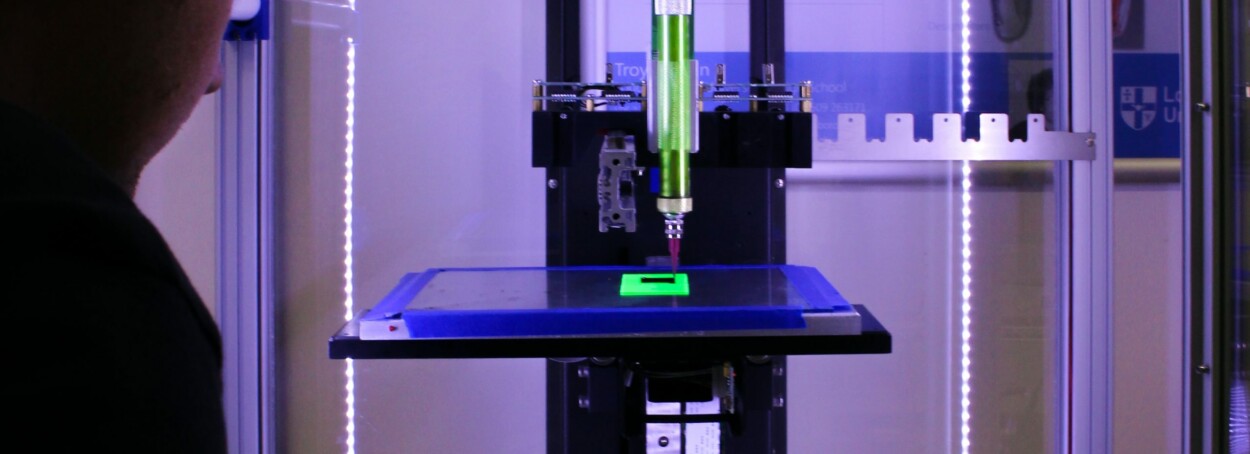

One of the central activities of the EU4Digital Facility in the area of ICT Innovation is supporting the establishment of a common legislative framework on ICT innovation in the Eastern Partnership region that would favour ICT innovation, based on EU norms and best practices.
Working towards this objective, the EU4Digital Facility identified the best EU practices for regulation in the policy areas that had been pre-selected by the Eastern partner countries:
- Intellectual property rights management for digital innovations (Armenia);
- New organisational forms for supporting ICT Innovation (Azerbaijan);
- Digital innovation SMEs’ access to finance (Georgia, Ukraine);
- ICT innovation ecosystems for start-ups and scale-ups (Moldova);
- Digitising industry (digital transformation of SMEs in traditional sectors) (Belarus).
This article provides an overview of the EU best practices in the area of Digitising industry (digital transformation of SMEs in traditional sectors), selected as a priority policy area in Belarus.
Digital transformation differs from automatisation and informatisation: it requires systemic changes of business processes, business models, and economic relations within and around the enterprise. Creating an environment for the digital transformation of SMEs operating in the traditional sectors of the economy should envisage a palette of specialised technological and business consultations that can be delivered by competence centres, collaboration of public and private sectors in country-wide initiatives (i.e. on skills-building and common standards), as well as a comprehensive financial framework to support SMEs in this complex endeavour.
Digital transformation is understood by the European Commission as a fusion of advanced technologies that integrates physical and digital systems and when combined with innovative business models and processes, leads to the creation of smart products, services and significant improvement of productivity. 3D printing makes the production process faster and cheaper, data analysis increases the efficiency of products, digital databases for real time checks facilitate management, and digital technology makes the acquisition of materials and parts easier [DigitaliseSME, 2020].
Programme and strategy for digitising enterprises in traditional industries
The EC is boosting the digitalisation of European industry with a special attention to the traditional sectors, small and medium enterprises, and regional disparities. The first EU industry-related initiative ‘Digitising European Industry’ (DEI) was launched within the Digital Single Market package in April 2016. The Initiative’s objective is to ensure that businesses of all sizes, location and sectors in Europe can draw the full benefits from digital innovation.
The Digitising European Industry initiative envisions up to €50 billion of public and private investments in support of digitising industry. The initiative is also open to the countries “covered by the European Neighbourhood Policy, in accordance with the general principles and general terms and conditions for the participation of those countries in Union programmes established in the respective framework agreements and Association Council Decisions, or similar agreements, and in accordance with the specific conditions laid down in agreements between the Union and those countries” (COM/2018/435 final).
In addition to this overarching initiative, the EU member states adopt conceptual and implementation documents at the national and regional levels in order to support the digitalisation of traditional industries. For example, the Digital Agenda for Germany of the Federal Government is complemented by the Digital Strategy 2025 of the Federal Ministry for Economic Affairs and Energy.
Financing of digital transformation for SMEs
A 2019 EIB study illustrates that many SMEs across Europe face difficulties to access financing, as banks may lack expertise to assess digital projects, which puts digital projects at a disadvantage compared to other kinds of projects. EIB recommendations include the development of a set of dedicated financial instruments for digital projects, accompanied by dedicated soft measures.
At the EU level, COSME (2014-2020), the EU programme to raise SME competitiveness, provides the COSME Loan Guarantee Facility (LGF) that supports the financing of digital transformation projects by SMEs in all sectors of the economy. A range of support is also available at the state level. For example, in Spain, the digital transformation of Spanish enterprises is facilitated, among others, with the following three instruments:
- Mediation financing lines, in which the Spanish Instituto de Crédito Oficial (ICO), grants financing through the mediation of credit entities;
- Risk capital from a venture capital management company participated 100% by ICO that offers companies capital and quasi-capital instruments to finance their growth;
- Direct financing based on loans for large investment projects on digital transformation.
Central policy making body for digital transformation
Best cases from the EU countries show that a well-balanced and equipped network of policy bodies to lead and foster digital transformation in the country should have a central policy making body for digital transformation. The central policy making body establishes balanced complementary mechanisms for development and implementation of the policy toolkit for digital transformation.
The central body collaborates with the other policy agencies that can contribute to policy development and implementation. The other policy bodies and agencies should have a clear understanding of their contribution domain and be able to allocate human and financial resources to this end.
To keep the legal framework in line with technological development, experts from the business and industrial community need to be involved in the development of the regulative framework for innovative digital technologies.
Competence centres, education for digital transformation and knowledge transfer
Another important pillar of the European policy aimed at digitalising of European industry is a network of Digital Innovation Hubs(DIH). Digital Innovation Hubs are defined as one-stop-shops that help companies to become more competitive using digital technologies. DIHs are regional multi-partner cooperations that include research and technology organisations (RTO), universities, industry associations, chambers of commerce, incubators, accelerators, regional development agencies and even governments. Thus, DIHs are based upon technology infrastructure and provide access to the latest knowledge, expertise and technology to support their customers with piloting, testing and experimenting with digital innovations. DIHs can also provide business and financing support to implement these innovations.
The European Parliament laid down a financial envelope for the Digital Europe Programme for the period 2021-2027 and introduced a special definition for European Digital Innovation Hubs for the purpose of transparent distribution of funds.
The European Digital Innovation Hub is a legal entity selected to provide or ensure access to technological expertise and experimentation facilities, to enable the digital transformation of industry, as well as facilitate access to finance. European Digital Innovation Hubs are opened to businesses of all forms and sizes, in particular to SMEs, midcaps, scale-ups and public administrations across the EU. More specifically, the European Digital Innovation Hubs:
- serve as access points to latest digital capacities including high performance computing (HPC), artificial intelligence, cybersecurity, as well as other existing innovative technologies;
- provide support in the area of advanced digital skills (e.g. by coordinating trainings for workers and internships for students);
- ensure a broad geographical coverage across Europe and should also contribute to the participation of the outermost regions in the Digital Single Market.
The DIH catalogue is a comprehensive database of digital innovation hubs across the EU, that allows search across countries, evolutionary stages, technical competences, services provided, technology readiness level, and market sectors (industries of economy).
The EU recognises the need to build up the knowledge and expertise necessary to support the direction towards the digital industry. The leading European digital innovation and entrepreneurial education organisation driving Europe’s digital transformation is the European Institute of Innovation and Technology, including EIT Digital. EIT Digital delivers breakthrough digital innovations to the market and breeds entrepreneurial talent for economic growth. It does this by mobilising a pan-European ecosystem of almost 200 top European corporations, SMEs, start-ups, universities and research institutes. EIT Digital will contribute to the network of DIHs through its project MIDIH.
Expertise and knowledge transfer is further supported by the mapping of companies that have successfully digitalised their processes and services (as Industrie 4.0 Map in Germany).
Digital industrial platforms facilitating digital transformation
Digital industrial platforms bridge the technology building blocks and industrial applications. Such platforms create synergies and not only save the businesses involved transaction costs but additionally enable new (digital) services and business models. Furthermore, they are usually specialised on individual sectors to a high degree.
The EC acknowledges that large scale piloting and experimentation is needed to gradually develop and mature such platforms and planned to make available €1 billion in EU investment in 2018-20 for efforts on platform building, large-scale piloting, pilot lines, and related activities (large scale federating projects).
Examples: Big Data Public-Private Partnership; Cybersecurity; Photonics; High Performance Computing; Robotics; Future internet (5G); ECSEL (electronic components and embedded software); Factories of the Future. German digital industry platforms – BDI
Next steps
The full report on the EU best practices in the respective area was used to develop the gap analysis framework between the EU and Belarus, and on the basis of the gap analysis, a set of policy recommendations for national policy instruments was drawn up. The recommendations then formed the basis for the national policy implementation action plan in the area of Digitising industry (digital transformation of SMEs in traditional sectors) for Belarus. The action plan can be used as a basis for further activities and possible independent joint projects involving national stakeholders. Further activities by the EU4Digital Facility (training, study visits, networking events, promotion activities, etc.) will support the interested stakeholders in their further activities on overcoming the gaps.
Adopting EU best practices in this way will help to boost the development of a mature ICT innovation and start-up ecosystem with well-functioning support organisations in the Eastern Partnership countries.
Ultimately, a common legislative framework will enable Belarus to benefit from the EU Digital Single Market, and to exchange and develop new innovative ideas with counterparts from EU member states.
The policy recommendations and national policy implementation action plan for Belarus can be downloaded from the EU4Digital library here.
- Armenia
- Azerbaijan
- Belarus
- Georgia
- Republic of Moldova
- Ukraine
- ICT innovation

12/02/2024
Resilience and digital transformation: Ukrainian universities in times of war
The digital technologies that support research and education (R&E) have been facing wartime challenges in…
Read More
30/01/2024
Wine Diamond — future ambassador to Europe of centuries-long Georgian tradition
“I had a previous life.” This is how Tamar Abuladze, the founder of Georgian brand ‘Wine Diamond’, begins the…
Read More
15/08/2023
The personal touch: Ukrainian wood company polishes its eCommerce strategy
“Wood is the all-time best material for making goods,” says Volodymyr Popovych, founder of ‘LIGNO’ in Western…
Read More

12/02/2024
Resilience and digital transformation: Ukrainian universities in times of war
The digital technologies that support research and education (R&E) have been facing wartime challenges in…
Read More
30/01/2024
Wine Diamond — future ambassador to Europe of centuries-long Georgian tradition
“I had a previous life.” This is how Tamar Abuladze, the founder of Georgian brand ‘Wine Diamond’, begins the…
Read More
15/08/2023
The personal touch: Ukrainian wood company polishes its eCommerce strategy
“Wood is the all-time best material for making goods,” says Volodymyr Popovych, founder of ‘LIGNO’ in Western…
Read More


